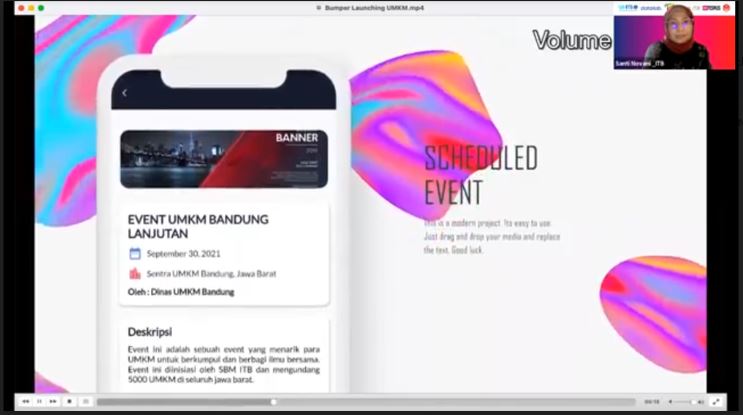SBM ITB soft-launched the Aplikasi UMKM (SME apps) to support digitization and global expansion of SME players in Indonesia. The program was run together by the Community Service Program of ITB, LPPM ITB, LPIK ITB, West Java National Crafts Council (Dekranasda), Kreasi, West Java SME Cooperative Service, and Bappeda West Java.

Santi Novani, a lecturer and researcher from SBM ITB, added that, through this app, SME owners might also get coaching and training from SBM ITB and LPIK ITB. This app is launched to address the condition of Indonesian SMEs, that have not yet adapted to digital technology and are unable to compete in the global market.
Yuwono Wicaksono, CEO of Goorita, revealed that Indonesia has around 64 million SMEs. However, only 13% of them have utilized digital technology. This issue is certainly a concern for the government, considering that digital technology is currently a must.

Through the presence of Aplikasi UMKM, it is hoped that it will be a bridge for SME players to take advantage of digital transformation and expansion into a wider market. The development of the apps was also supported by the Chair of the National Crafts Council (Dekranasda) of West Java, Atalia Praratya, S.IP., M.I.KOM, and the Head of the West Java Province Cooperative and Small Business Office, Drs. Kusmana Hartadji, MM.
Global expansion
In addition to digitalization issues, Indonesian MSME products are still inferior to other countries in terms of global competition. “Demand abroad is very large, but many Indonesian products are still dominated by Thailand, Vietnam, and the Philippines,” said Yuwono. He emphasized the importance for Indonesian SME products to take the right steps in penetrating the international market.
To enter the international market, Dini revealed several obstacles faced by Indonesian SME players, one of which is related to lack of accessibility, especially to access to resources. “The low accessibility of productive resources, especially related to financing, information, promotion, technology, and business network for export products,” said Dini.
In addition, according to Dini, changes in consumer behaviour and the production process of SME products using traditional systems are also obstacles to the expansion into the global market.





